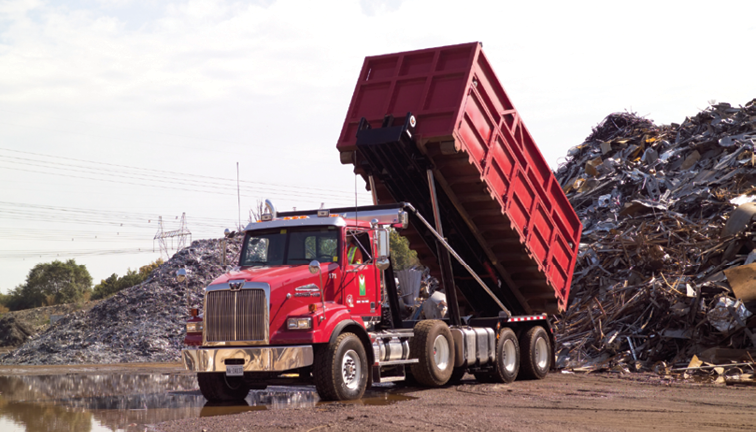

Brampton, Ontario-based Triple M Metal LP offers ferrous and nonferrous scrap purchasing, collection, processing and trading services. The firm registered more than $1 billion revenue in 2017 from its scrap metal business in 26 locations in Canada, the United States and Mexico.

China’s government’s changing policy for scrap import in 2017 had some impact in their scrap trade. Then China has levied 20% tax on scraps imported from the US. For Canadian recyclers like Triple M, 2018 also made a difference because the United States president suddenly decided Canada was a suspect ally and trading partner and imposed 25% and 10% tariffs on steel and aluminium imported from Canada.
The management team of Brampton, Ontario-based Triple M Metal LP has had to go through both these diplomatic storms. Triple M has operations that span all three North American Free Trade Agreement (NAFTA) nations, and, like recycling firms everywhere, it has been shipping scrap to China in considerable amounts since 1990s. China currently has imposed a total of 50% tariffs on scraps imported from the US and the company’s US facilities have to pay the tariffs while exporting to China.
Although the Chinese government has cut down on imported scrap alliance and has banned some scrap grades, it continues to accept other grades with newly specified purity levels. Triple M President Oscar Moniz says the effects have been huge on their business.
“Zorba import demand in China has been drastically reduced because of these new regulations, and domestic secondary aluminium prices have begun to erode as a result,” Moniz says. “The industry will have to look for new homes for material both domestically and abroad as well as invest in processes that can recover 99 per cent metallics to meet China’s new stringent standards.”
Moniz says that it “will continue to invest in equipment (chopping line and nonferrous downstream separation) that can reduce our export requirements and create the cleanest high-grade end products possible.”
Though U.S., President Donald Trump campaigned mostly against Mexico, in the NAFTA negotiations, he also pointed to China as a trading partner taking advantage of the U.S. However, Trump’s steel and aluminium tariffs on Canadian import—a nation that has shared the world’s largest undefended border with the U.S. for more than a century has disrupted the trade equations completely.
This has provoked Canadian government to respond with retaliatory tariffs on a list of goods supplied by the U.S. to Canada.
“These tariffs, in combination with stalled NAFTA negotiations, have created a high level of uncertainty and unpredictability about the future of Canadian-U.S. trade and the steel, automobile [and] manufacturing industries as a whole,” Moniz says.
He said that an extended trade dispute is likely to lead to more trade disruptions and supply uncertainty among countries.
“Should these tariffs continue long term, the scrap industry will be affected by possible swings in the price of finished steel and aluminium as well as the potential relocation of some Canadian and U.S. manufacturing operations,” he concluded.
Responses








